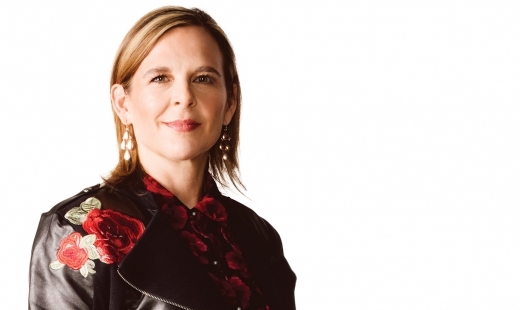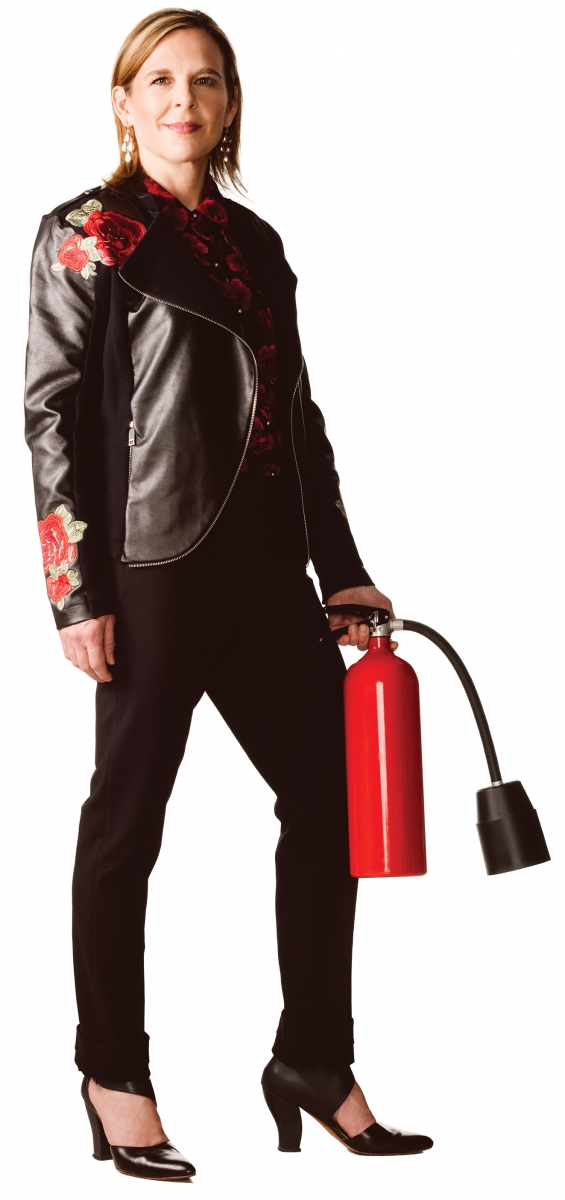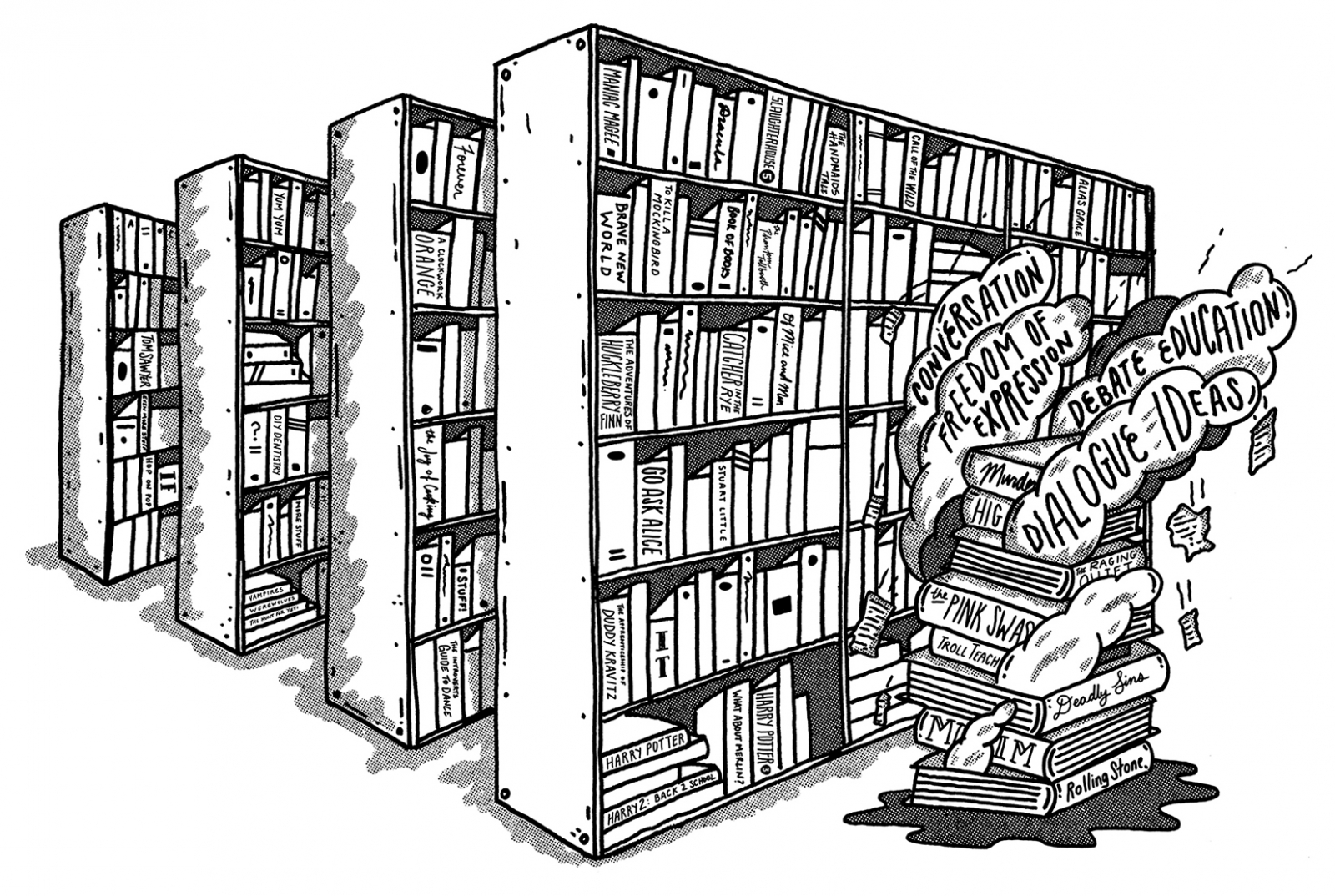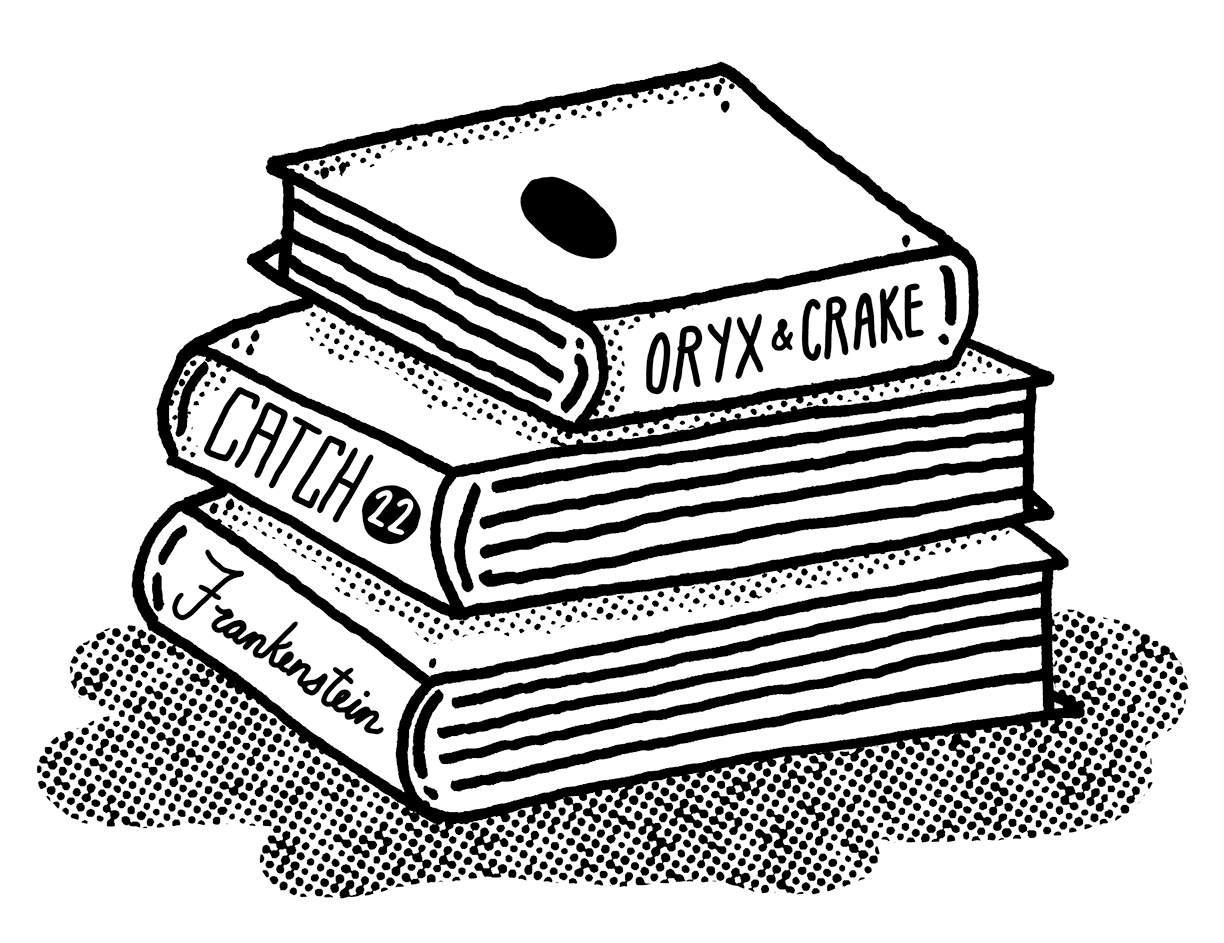
On April 27, 2017, the Edmonton Public Library (EPL) held a talk as part of its Forward Thinking Speaker Series, in which a prominent political or cultural figure reflects on his or her work and life. The April instalment featured the award-winning novelist Joseph Boyden, who had been invited, according to the EPL, to talk about “his life to date as a writer, including recent events.” This was a cryptic but diplomatic way of alluding to the controversy that engulfed Boyden post-invitation, the gist of which were questions around the precise nature of his Indigenous heritage. Boyden, partly through his writing and partly through his own myth-building, had become a point person for Indigenous matters in Canada: a writer able to create with one foot in both camps, Indigenous and settler. The only problem was that he was revealed to be not quite as Indigenous as he made himself out to be, raising all kinds of tricky questions about cultural appropriation – more or less at the same time Canadians were trying to figure out how to respond to the sickening realities of the final report of the Truth and Reconciliation Commission. Here we had one of the country’s cultural icons revealed as, if not a fraud, then at least a probable dissembler. Matters weren’t improved by Boyden’s opaque comments in response.
It was under this cloud that Boyden’s EPL appearance neared. The City of Edmonton was supposed to have Boyden speak at an event the day before his EPL event, but it cancelled his show outright, leaving the library in an even more difficult spot. Pilar Martinez, EPL’s CEO, and her team debated what to do. They were feeling pressure from all sides – Indigenous groups, cultural groups, freedom of speech advocates. They knew that if they cancelled, they’d be accused of caving to political correctness. Censored, in other words. But they also knew that if they went ahead, they’d be accused of supporting someone possibly guilty of culturally appropriative fraud. They decided to go ahead with the event, which meant introducing Boyden that night made for a daunting task for Martinez.

“That was not easy,” she says. “But you know what, I figured there was no sense shying away from anything, so I addressed it right off the bat. Also, we did speak with our Elder in Residence and his response was that Joseph Boyden is a human being and should be heard. I guess the way we looked at it, in going ahead, was that it was about freedom of expression and that we see the library, and our library, as increasingly something that exists as a space for these kinds of conversations to take place.”
EPL’s event with George Takei in November 2017 came in the wake of an allegation of sexual assault against him, also making for a difficult circumstance. At the event, Executive Director of Strategy and Innovation Tina Thomas introduced him and noted that while continuing with the event “was not an easy or comfortable decision,” EPL believed in the “presumption of innocence.” Takei didn’t shy away from addressing the allegations, saying that “you can’t disprove something that didn’t happen.”
Even speakers who seem to have largely supportable messages sometimes alienate people. Take Salman Rushdie, who spoke in the EPL series in 2016; his views on the fundamental value of free speech still managed to offend a few people enough that some walked out of the event. Martinez and Thomas’s points are well taken, especially in an era where political correctness is on the rise on most campuses across North America; a trend all too often resulting in the suppression of debate around ideas that might be offensive and/or provocative, but which remain legal. In recent months, we have seen many instances of curtailing free expression on campuses across Canada, from pro-life groups to various Middle East interest groups to the gender pronoun provocateur Professor Jordan Peterson at the University of Toronto. Whether or not one agrees with the views of certain people or groups is not really the point. Even the new leader of the Conservative Party, Andrew Scheer, has noted that universities should “lose federal funding” if they inhibit free speech.

What this means for the EPL is clear: Fighting censorship is really about safeguarding spaces for people to exercise their intellectual freedoms. Libraries are on the firing line in many ways, says Martinez. “What we really want to achieve is a healthy dialogue. There is nothing wrong with tough questions. Obviously, we aren’t going to have anything to do with hate speech or anything illegal, but, after that, we think it’s important to give people the chance to hear different viewpoints, to be part of a process of critical thinking, to ask questions. To us, that’s a really critical role to fill right now, to have a vision of the library as a public space.” Of course, a library is both a public space and a private space. This is one of the great tensions surrounding libraries in the digital age, and censorship and freedom of expression are front and centre. Any library is, at its heart, only as strong as its collection, but what is a collection in today’s online universe, where almost anything is accessible? A censorship debate used to be fairly straightforward back in what kids today call The Dark Ages (pre-internet). A book or a movie would be released and would exist as a thing you could see and hold. There were hard copies. A group on one side – typically a collection of people leaning towards the conservative and reactionary element of society – would say that said thing was an affront to social mores and call for its suppression. A group on the other side – typically a collection of people leaning more towards the progressive and permissive element of society – would defend said thing based on the right to free speech or the evolution of social mores. This debate would play out in various ways, usually involving the press and the sitting government and the matter would often get resolved – or at least put on the back burner – according to the leanings of the government of the day.
That was then. This is now. The internet has created not just a whole new layer of considerations around what constitutes potentially censorable material, but even more problematically around how to censor it, if it eventually comes to that. The EPL’s collection is selected under its Collection Management Policy, which acknowledges that there will be, from time to time, citizen complaints or concerns about a title or type of material selected or removed from the collection. The EPL essentially endorses the Canadian Federation of Library Association’s “Statement on Intellectual Freedom and Libraries,” which says in part that it is the responsibility of libraries to safeguard “constitutionally protected expressions of knowledge, imagination, ideas, and opinion, including those which some individuals and groups consider unconventional, unpopular or unacceptable.” It goes on to add that libraries also have to provide and defend equal access and to “resist calls for censorship and the adoption of systems that deny or restrict access to resources” and to protect free expression and make services and spaces available without discrimination.

I put it to Martinez that all this sounded uncomplicated and easy to implement. She laughed and told me that the way the EPL tends to handle issues of intellectual freedom and censorship is both direct and transparent. Yes, it has statements of policy and principle, but mostly, she says, instances of public complaint are “an opportunity to have a conversation.” If people object to a work in the collection or even to an upcoming speaker, they are made aware that they can fill out a form called the Citizen’s Request for Reconsideration of Library Material. But prior to that form being filled out, library staff will almost always engage in an on the floor conversation with the person, hearing him or her out, explaining the library’s role in society, even diving into the deeper waters of the philosophical principles at stake.
“We actually rarely have to go to the formal level right away,” says Sharon Day, the director of Branch Services and Collections. “A customer might get upset, but we talk, we go through process and principles, we talk about our guidelines.” In 20 years the library has only ever removed two items because of a challenge, one due to plagiarism and one that was out of date. “What does happen more often is that something might be judged to be in the wrong section, such as material that’s too graphic for a children’s section,” Day says. “That can happen.” Day says that the core value of public librarianship is to ensure the widest breadth of material possible. “And I’m sure there’s something in there to offend everyone!” she says, laughing. “But our goal is to allow customers to access materials that will help them make their own informed decisions. We support that. But we do recognize that there are materials some customers will have concerns with. We welcome hearing about it. A collection belongs to the population, so they have the right to question it.”
But, in general, Day adds, Edmonton is a very tolerant city. Given the millions upon millions of items in the collection, the EPL gets relatively few formal complaints – just over 100 in the last 20 years. Those complaints are posted publicly on the EPL’s website. A review of the number and nature of complaints quickly reveals a pattern around sexuality and sexual situations that complainants feel might be too accessible or influential on younger people. Graphic violence is the second most common complaint. Some people, by way of example, complained that the Sports Illustrated swimsuit issue is soft-core porn and should be removed. Someone thought a children’s picture book, Ziggy Piggy and the Three Little Pigs, should be moved to the adult section because they “don’t know what the author was hoping children would learn from the actions of the pig named Ziggy. Yes he was creative and perhaps a free spirit. However, he may have delivered his friends into greater danger.” One person felt a novel from the Dark-Hunter series, found in the library’s adult collection, was too explicit because of its scenes of child abuse. The complainant claims to have burned the book to prevent other EPL users from accessing it, though the arsonist did pay the EPL the replacement cost to allow it to purchase a different book. (The EPL simply put a new copy of the same book on the shelves.) “People are usually pretty reasonable,” Day says. “Even when we’ve had formal complaints, once we supply a formal response of our reasoning for leaving something in the collection, I’ve never experienced an appeal.”
Part of the EPL’s success in this regard undoubtedly comes down to staff training, not just around issues of intellectual freedom, but also customer treatment and even de-escalation training. Mary Jane Bilsland, the manager of the Lois Hole Library, says that their record of good relations is due to the EPL’s commitment to respectful dialogue. “Recently, there was a man on one of our computers looking at something to do with Al Qaeda, and it was really graphic material. Not illegal, but graphic. There were children nearby. So I went up to him and pointed [this] out to him … and that was a matter of community standards and being mindful. As soon as he looked around he saw what I meant and he moved to a different [web] site. I mean, obviously if something goes against the Criminal Code we intervene immediately, but aside from that we try to use common sense and keep the dignity of the customer. We work a lot on explaining wider situations and gaining cooperation.”
As Bilsland alluded to, it’s not always a matter of books. The EPL is, like most public lending institutions, grappling with both content and platform in today’s digital age, with a tidal wave of unregulated information streaming across a myriad of devices every second of every day. Some libraries, such as the Ottawa Public Library, use internet filtering devices, but the EPL does not. It has had inquiries and complaints about it, but have relied upon their tried and tested method – conversation and education. “We had one lady express great concern to us about access to pornography,” Day says, “but once we explained our process to her – that nothing illegal should be accessed on our computers and that we always take the setting into account – then she was actually OK with it. Which is good, because, really, not allowing people access to things that are legal is censorship.”
Alvin Schrader, Professor Emeritus of Library and Information Studies at the University of Alberta, has acted as a supporter and champion of the EPL for many years in refining and enacting its policies and principles around intellectual freedom and free speech. He has long had an interest in issues of free speech, dating back to his days as a young librarian working at the City of Brampton Public Library in Brampton, Ontario. He remembers that, when there was a bitter public outcry about the screening of a movie about Quentin Crisp, the mayor of neighbouring Mississauga demanded that she approve the library’s film series. “The outcry and the mayor’s interference created an instant chill for me about my personal safety as a gay man, because I worked in the municipality immediately north of Mississauga,” Schrader says. “The whole event made me very nervous for a few weeks. Fortunately, the Mississauga storm of homophobia blew over before it seeped northward to our area.”
Access must always remain a fundamental principle, says Schrader, and that includes “uncensored and unfettered access” to space. Most major libraries offer meeting spaces to the public, for instance, for either no charge or a small fee. The Toronto Public Library was recently caught up in a stream of negative publicity when it came to light that a group rented out a room for a memorial service for the lawyer who had represented the Holocaust denier, Ernst Zundel. There was outrage that a public institution was being used for such a purpose. The library responded that such a gathering was not illegal, but it sent a representative to the meeting anyway. The Toronto mayor, who had called for the memorial to be cancelled, weighed in and has forced the library to review its meeting room policy.
“There are things we have to be very careful about,” says Schrader. “Just because we don’t agree with someone’s point of view doesn’t mean they don’t have the right to hold that point of view, within the Canadian democratic context. And because of this whole shift of what can be said in public, maybe because of Trump, it’s getting harder to have an actual dialogue. There’s an increasing polarization of the public sphere in the United States, and I’m concerned we could have that happen here. We already have had various public expressions of this sort of stuff, around statues and naming of areas like Oliver [after Frank Oliver, who pressured Indigenous people to give up their land] , about how to respond to these historically racist people. We have to find ways to have these dialogues and examine multiple perspectives of all voices in the community. Citizens must decide for themselves, no one else can ever be allowed to decide for them what to think or read or view.” It’s precisely because there is no simple formula that it’s necessary to keep talking about it, to never stop engaging and encouraging people to examine not just what they think but to consider what others might think. “Maybe we’re just naive,” laughs Schrader, “but that’s how librarians actually think!”
Martinez agrees that it’s more important than ever to not shut down debate, but to create space an even wider space for it. In this regard, the library has become a kind of public square. “That’s certainly one of our visions here at the EPL,” Martinez says. “That the library is a space for the entire public. There simply has to be a diversity of opinions in the collection and in everything we do. Libraries today are not just collections of books, they’re spaces for people to make their own ideas, to create. They’re transformative spaces. Yes, there are going to be sensitive and tricky situations, like with the Boyden lecture, but our reaction to that was to say, hey, if you don’t agree with him, or with us for doing it, then let’s talk about it in public. It’s about connecting. I remember we had some feedback from a public survey once and someone said, ‘Libraries are the opposite of loneliness.’ I loved that and I think it’s true.”
The Joseph Boyden event was undoubtedly a lightning rod for the EPL around the questions of intellectual freedom, free speech and censorship. The maturity of a society can often be judged by its tolerance for marginal or controversial views, and the EPL, in allowing Boyden to speak when others were shutting him down, put its faith in Edmonton. Guests at Boyden’s talk were not censored or prevented from asking any questions. “We left quite a bit of time for Q&A,” Thomas says. “Most people asked about his writing process and his characters. Some talked about the impact his writing had on them personally and professionally. There were clearly many avid fans in the room. There was one question about the controversy. I can’t recall the exact question but it was about the allegations and his response. It wasn’t aggressive or confrontational – just the question. He didn’t answer it directly. He used similar language to what he had said in his written statement – that he believed he was Indigenous, he was feeling supported by his community and network, he was taking time to listen. I do think some people wished he had talked about it more.”
Whether Boyden is what he says he is is almost beside the point. Giving people access to help them make up their own minds is the point – a concept that will surely be tested when the EPL brings in Jian Ghomeshi’s lawyer, Marie Henein, for their Speaker Series as part of Freedom to Read Week on February 27. There’s a sportscaster in Edmonton named John Short, who worked for a local radio station and now makes the occasional appearance. He was funny and opinionated and when he disagreed with someone’s stance, he would tend to say in an amiable voice, “Well, everyone has the democratic right to be wrong.” In some ways, that is the EPL’s stance. Serving only the mainstream would do nothing but reinforce mainstream views. Access can be a scary word, because it means recognizing that people have the right to explore views radically different from our own. Is Edmonton a mature enough city to embrace that principle? The EPL sure seems to think so.
This article appears in the February 2018 issue of Avenue Edmonton











